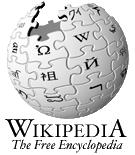
I appreciate the re-tweet below but I did not say anything remotely close to this sentence:
@sevinfo Reading "top" journals only distorts your world - Argument for scrapping peer review at BMJ blogs via @DrVes & @KentBottles
http://twitter.com/sevinfo/status/10929698882
My original tweet:
@DrVes The naïve concept that the “top journals” publish the important stuff and the lesser journals the unimportant http://goo.gl/utJ5
http://twitter.com/DrVes/status/10892767666
My
expanded citation on Google Buzz:
The false idea that only the “top journals” publish the important stuff
From the former Editor-in-Chief of BMJ:
The naïve concept that the “top journals” publish the important stuff and the lesser journals the unimportant is simply false. People who do systematic reviews know this well. Anybody reading only the “top journals” receives a distorted view of the world. Unfortunately many people, including most journalists, do pay most attention to the “top journals.”
http://blogs.bmj.com/bmj/2010/03/22/richard-smith-scrap-peer-review-and-beware-of-%E2%80%9Ctop-journals%E2%80%9D/
http://www.google.com/buzz/110859855629071891085/TPmyVKjvZS9/The-false-idea-that-only-the-top-journals-publish
Please click the Buzz link above to see how much more "richer" the comments there are as compared to Twitter where the microblog updates (tweets) are limited to 140 characters.
This little example adds to the opitinion that many times Twitter is not good enough for scientific information and discussion.
Follow-up:
@sevinfo: yoicks! I was agreeing to need to read both "top" & less exciting ; not saying that reading science distorts your world! For record - @DrVes points out that text on last link open to misinterpretation - Keep reading science journals both top & less glamourous!
Comments from Google Buzz (March 23-24):
Kathy Mackey - Appreciate the followup Dr. Ves. I read the article yesterday on BMJ on scientific journals and felt I was missing something. It is true that 140 characters can be difficult to relay important information to the public
Brian Ahier - This is a problem that can not be adequately addressed because of the character limitation in Twitter. But it is an opportunity for a service like Buzz to be a bridge for longer commentary and discussion. I suggest we have more conversations in Buzz and then tweet a link to the post.
Ves Dimov, M.D. - Agree. Works very well with some posts. However, the Buzz adoption rate is significantly lower than Twitter and seems to have plateaued a few week after its launch.
Brian Ahier - Quality vs. Quantity?
I have found a much higher quality conversation seems to be happening on Buzz. Perhaps some of the adoption will not be missed. I have yet to be bothered by a spam account on Buzz and many of the followers on Twitter soon become inactive.
Ves Dimov, M.D. - True. People put more thought into Buzz comments - the accounts are often tied to their "real" identity after all. Participation fatigue is a common occurrence among all services.
Brian Ahier - I am also fortunate that many of my higher profile followers like Tim O'Reilly, Richard MacManus, and Robert Sconle are active on Buzz. As Buzz matures I think we will see some interesting applications. Then when Google buys Twitter we'll be all set ;-)
Ves Dimov, M.D. - Yes. Although Evan Williams keeps saying that Twitter is not for sale not matter what the price...
Brian Ahier - Yeah, Ev is an idealist :-D
Ves Dimov, M.D. - You have to respect the guy - he brought two very important services to popularity and success - Blogger and Twitter. Even one would be enough for the Internet history books... :)
Ves Dimov, M.D. - @Brian Ahier - I'm sorry I deleted your comment by mistake and there is no "Undo" in Buzz. "You" was meant in general not for you in person. And, yes, I share the same opinion.
Brian Ahier - Buzz does need an undo - but as I said, I admire people who old to their ideals. Ev has made some outstanding contributions and has an amazing talent.
Neil Mehta - Some of my best online experiences have been on Buzz - feels like a civilized sit down dinner with a conversation. Twitter can leave one feeling like everyone is rushing around on a big field shouting "hello" to the world, hoping someone will reply and start a conversation - it is great when to find that stranger with whom you share an interest but that happens rarely and the conversation is usually very unsatisfactory. Understand the Twitter functionality was not designed for conversations......
Vamsi Balakrishnan - @Neil Mehta: It's exactly as Dr. Ves said though; Buzz is tied to your real identity more or less, which is especially true for those who have verified profiles. It's also easier to have conversations since there's no 140 character limit...and it goes to those who use twitter anyway if you've enabled it. So, for me at least, it was a seamless transition.
The only problem that exists though, which truth be told hasn't affected me yet, is that there's a 300 comment limit. 300 replies to a post can exist, no more.








